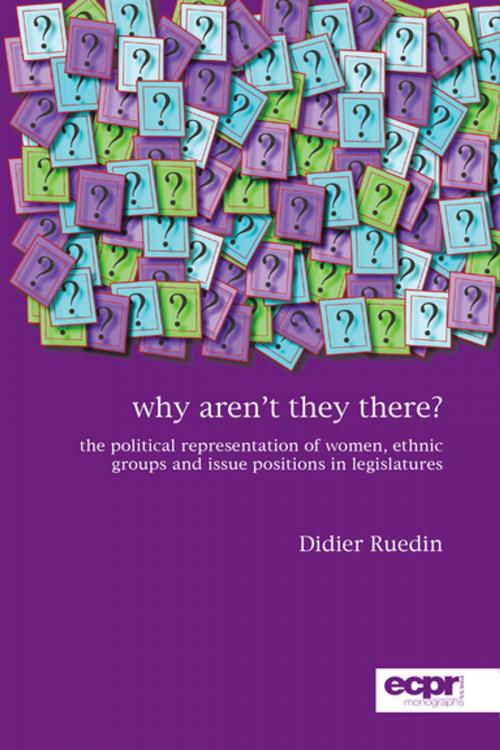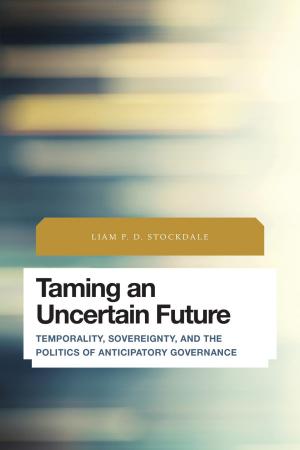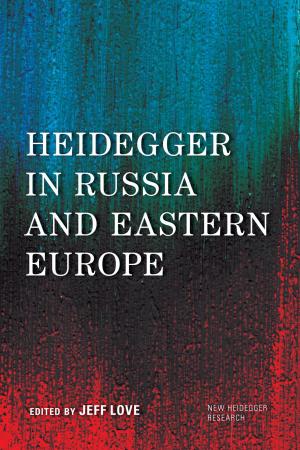Why aren't they there?
The Political Representation of Women, Ethnic Groups and Issue Positions in Legislatures
Nonfiction, Social & Cultural Studies, Political Science, Government, Elections| Author: | Didier Ruedin | ISBN: | 9781910259108 |
| Publisher: | Rowman & Littlefield International | Publication: | January 1, 2016 |
| Imprint: | ECPR Press | Language: | English |
| Author: | Didier Ruedin |
| ISBN: | 9781910259108 |
| Publisher: | Rowman & Littlefield International |
| Publication: | January 1, 2016 |
| Imprint: | ECPR Press |
| Language: | English |
Why Aren't They There? is a comprehensive study of political representation in a cross-national format. It examines the representation of women, ethnic groups, and policy positions in a cross-country comparison. The book includes an analysis of the representation of women over time, and presents a critical view of the effectiveness of quotas. Using new data on ethnic groups in legislatures, the book is a significant step forward in the analysis of political representation. The representation of issue positions is examined in eight policy domains. The systematic approach of the book allows a ground-breaking examination of how different forms of representation – women, ethnic groups, issue positions – are interlinked. It examines aspects that are unattainable in studies focusing on only a single form of representation. This results in a comprehensive understanding of political representation, and leads to important and policy-relevant insights for electoral engineering.
Why Aren't They There? is a comprehensive study of political representation in a cross-national format. It examines the representation of women, ethnic groups, and policy positions in a cross-country comparison. The book includes an analysis of the representation of women over time, and presents a critical view of the effectiveness of quotas. Using new data on ethnic groups in legislatures, the book is a significant step forward in the analysis of political representation. The representation of issue positions is examined in eight policy domains. The systematic approach of the book allows a ground-breaking examination of how different forms of representation – women, ethnic groups, issue positions – are interlinked. It examines aspects that are unattainable in studies focusing on only a single form of representation. This results in a comprehensive understanding of political representation, and leads to important and policy-relevant insights for electoral engineering.















